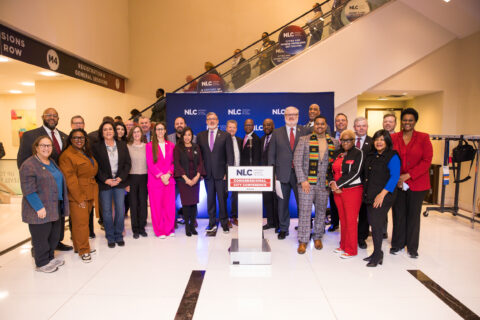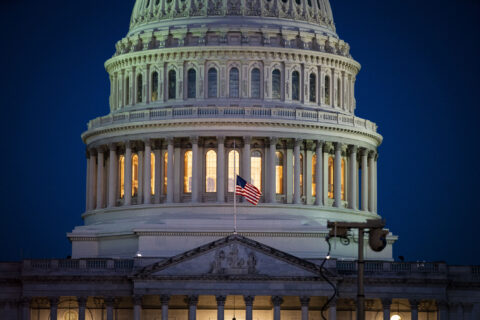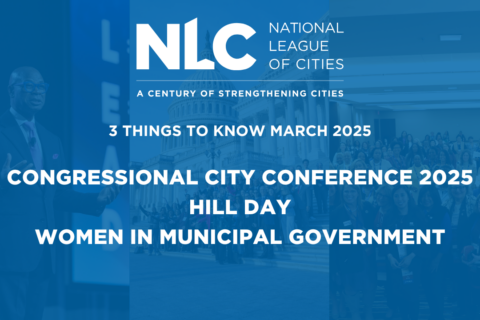Co-authored by: Amanda Karras, Executive Director/General Counsel, International Municipal Lawyers Association
Today, the Supreme Court held in Grants Pass v. Johnson, in favor of preserving local control and upholding local ordinances regulating camping on public property. The Supreme Court held that the Eighth Amendment’s Cruel and Unusual Punishment Clause does not prohibit the enforcement of generally applicable laws regulating camping on public property. The decision highlighted the complexities of the homeless crisis and overruled a previous lower court decision in Martin v. Boise on this same issue, which had taken “one of [the] tools [needed to address homelessness] off the table.” While the facts in this case center around ordinances passed in Grants Pass, the legal question in this case was one of local authority.
In the Martin case five years ago, the Ninth Circuit Court held that the Eighth Amendment “prohibits the imposition of criminal penalties for sitting, sleeping, or lying outside on public property for homeless individuals who cannot obtain shelter.”
In the Martin case five years ago, the Ninth Circuit Court held that the Eighth Amendment “prohibits the imposition of criminal penalties for sitting, sleeping, or lying outside on public property for homeless individuals who cannot obtain shelter.” As a result of that decision, local governments in the Ninth Circuit could not enforce public-camping ordinances against homeless individuals who lacked “access to alternative shelter.” Today’s decision provided clarity around whether local governments can regulate for the health and safety of their residents in accordance with local needs and conditions.
The City of Grants Pass has a population of about 38,000 residents, with about 600 individuals experiencing homelessness. The city passed several ordinances related to the regulation of sleeping outside. A violation of these ordinances resulted in fines, which would escalate if left unpaid. Additionally, a “park exclusion” ordinance, enabled police officers to issue citations to those in violation of the ordinances which could eventually escalate to criminal trespass. After the Martin decision, Grants Pass amended its camping ordinance to make it clear that the involuntary act of sleeping in a park was not prohibited, rather what was prohibited was “camping” – i.e., sleeping with any bedding/shelter.
As a result of the ordinances, two homeless individuals in Grants Pass filed a class action lawsuit on behalf of those that are “involuntarily homeless” against the city, arguing its ordinances are unconstitutional under the Eighth Amendment’s Cruel and Unusual Punishment Clause. The Ninth Circuit affirmed the lower court’s holding that “the anti-camping ordinances violated the Cruel and Unusual Punishment Clause to the extent they prohibited homeless individuals from ‘taking necessary minimal measures to keep themselves warm and dry while sleeping when there are no alternative forms of shelter available.’” Although the city had four temporary shelters, none were “adequate” for their homeless population.
Today, the Supreme Court issued in a 6-3 opinion authored by Justice Neil Gorsuch reversing the Ninth Circuit’s “Martin experiment.”
Today, the Supreme Court issued in a 6-3 opinion authored by Justice Neil Gorsuch reversing the Ninth Circuit’s “Martin experiment.” The majority stressed that the “cruel and unusual punishment” clause under the Eighth Amendment has largely applied to legal issues relating to the methods of punishment and not whether a certain conduct can be criminalized. The majority contended that the fines and criminal penalties that are associated with the City of Grants Pass’ ordinances do not qualify as “cruel and unusual punishment”. Additionally, the decision reasoned that the Eighth Amendment “does not authorize federal judges… to dictate this Nation’s homelessness policy.” Justice Gorsuch wrote that the task of determining homelessness policy should rather belong to America’s people. The majority strongly underscored the important federalism and separation of powers issues inherent in their decision.
The National League of Cities filed a brief in this case along with our founding partners of the Local Government Legal Center (LGLC), the International Municipal Lawyers Association and the National Association of Counties. The Court used the local government amicus briefs to highlight everything from the scope of the homelessness problem, to how Martin is being interpreted in lower courts to hamstring local governments, to some of the solutions that local governments are seeking to address homelessness. Citing the LGLC brief and naming the National League of Cities as a source, the Court noted “these public-camping regulations are not usually deployed as a front-line response to criminalize homelessness. Instead, they are used to provide [local government] employees with the legal authority to address encampments that pose significant health and safety risks and to encourage their inhabitants to accept other alternatives like shelters, drug treatment programs, and mental-health facilities.”
This case returns the hard task of solving the homeless crisis to state and local policymakers, where it belongs, with resource support from the federal government.
The Supreme Court and many amici agree that the problem of homelessness is extremely complex. This case returns the hard task of solving the homeless crisis to state and local policymakers, where it belongs, with resource support from the federal government. Rather than spending significant time, money, and resources litigating Martin claims, local governments can focus on expending resources to help the homeless community while ensuring their public spaces are safe and accessible, in a manner consistent with local needs.
Learn More
For more information from NLC on understanding encampments and compassionate and effective solutions, please visit NLC’s Resource Library.










